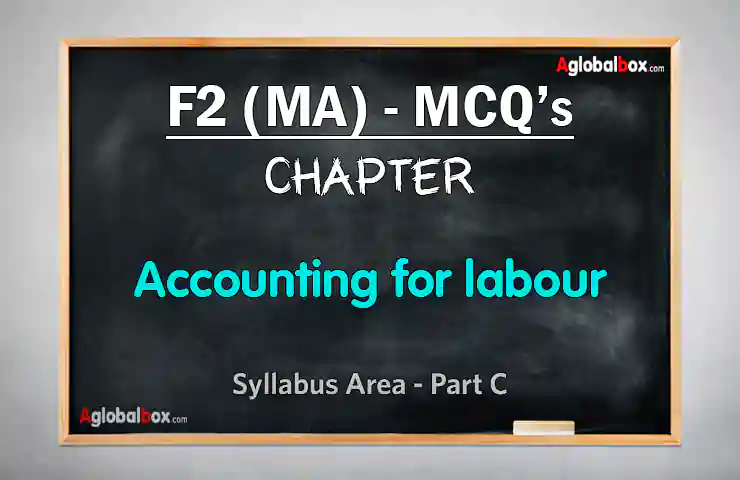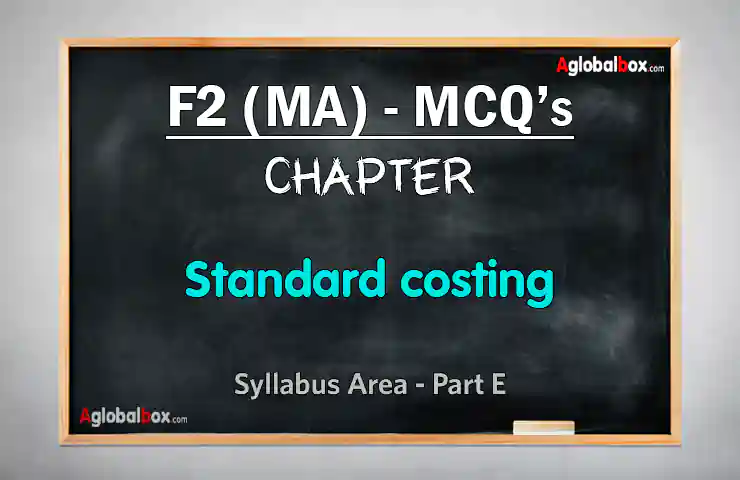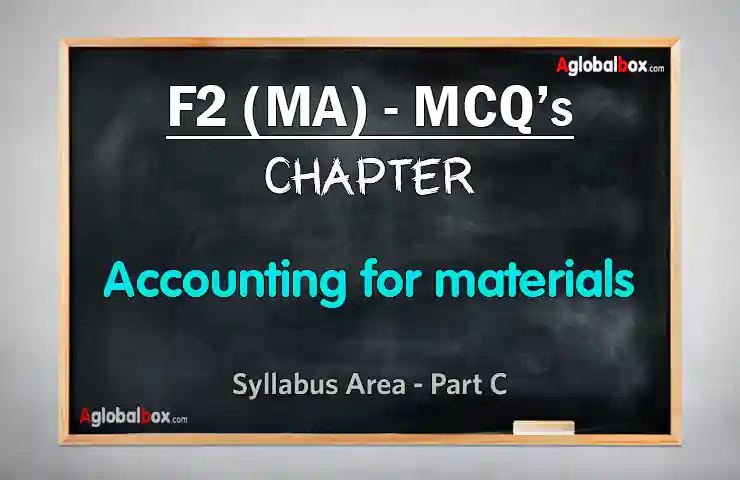These are ACCA F2 (MA/FMA) Management Accounting MCQs for Part-C of the Syllabus “Cost accounting methods and systems”.
These multiple-choice questions (MCQs) are designed to help ACCA F2 (MA) students to better understand the exam format. We aim to instill in students the habit of practicing online for their CBE exams. By doing so, students can reduce exam stress and prepare more effectively.
INFORMATION ABOUT THESE MCQs Test
Course: ACCA – Associations of Chartered Certified Accountants
Fundamental Level: Knowledge, FIA – Foundation in Accounting
Subject: Management Accounting
Paper: F2 – MA/FMA
Chapter: Accounting for labour
Chapter Number: 06 of the Practice and Exam Kit
Syllabus Area: C – Cost accounting methods and systems
Questions Type: CBE MCQs
Exam Section Type: Section A
Benefits of Practicing Online on AGlobalBox.com
- Authentic Exam Experience:
Practicing online allows ACCA students to experience an environment closely resembling the actual exam. The MCQs on our platform are designed to mirror the format, difficulty level, and question types found in ACCA exams. This familiarity helps students become more comfortable and confident when facing the real exam. - Comprehensive Question Bank:
We provided comprehensive question banks covering various topics across the syllabus. By practicing online, students gain access to a wide range of MCQs that thoroughly test their knowledge and understanding in each area. - Enhanced Learning and Retention:
The interactive nature of online practice enhances learning and improves information retention. Students can actively engage with the MCQs, select answers, and receive immediate results. This approach aids in reinforcing concepts and identifying areas that require further study, thereby maximizing learning outcomes. - Time Management Skills:
Practicing online helps students develop essential time management skills required for ACCA exams. By adhering to time limits while answering MCQs, students learn to allocate their time effectively and improve their speed and accuracy. This skill is invaluable for completing the actual exam within the given time constraints. - Performance Tracking and Progress Evaluation:
Students can monitor their results, track their strengths and weaknesses, and identify areas that need improvement.
Number of the Questions
There are 12 Questions in this F2 MCQ Test that cover Chapter 6; Accounting for labour of ACCA F2 (MA/FMA) Management Accounting Module.
Time
This MCQs test is not time-bound. Take your time and solve them without stress. Pay proper attention and focus. Do not rush or hesitate.
Result
Students will get their F2 CBE MCQ result after they finish the entire test. They will also be able to see the score in percentage, correct and incorrect answers, as well as explanations for the incorrect questions.
Types of Questions
MCQs: Choose one from the given options.
Multiple choice: Choose all answers that seem correct or incorrect, as per the requirement of the question. Keep your eye on the wording “(select all those which are correct/ or incorrect)”.
Dropdown: Select from the list provided.
Type numbers: Type your answer in numbers as per the requirement of the question.
- ACCA F2 MCQs
- MA/FMA MCQs
- ACCA F2 MA Multiple Choice Questions
- Management Accounting Online Multiple Choice Questions
- ACCA F2 MA Practice Questions Online
- ACCA Management Accounting Online Practice Questions
- F2 Management Accounting MCQs Online
- F2 MCQs
- ACCA MCQs
- ACCA F2 MCQs Chapter Wise
- Online F2 MCQ Test
- ACCA F2 Chapter 6 CBE MCQs Online
- F2 MA Chapter 6 MCQs Online
- F2 MA Chapter 6 CBE MCQs
- F2 MA Chapter Accounting for labour MCQs Online
- F2 MA Chapter 6 Accounting for labour CBE MCQs









